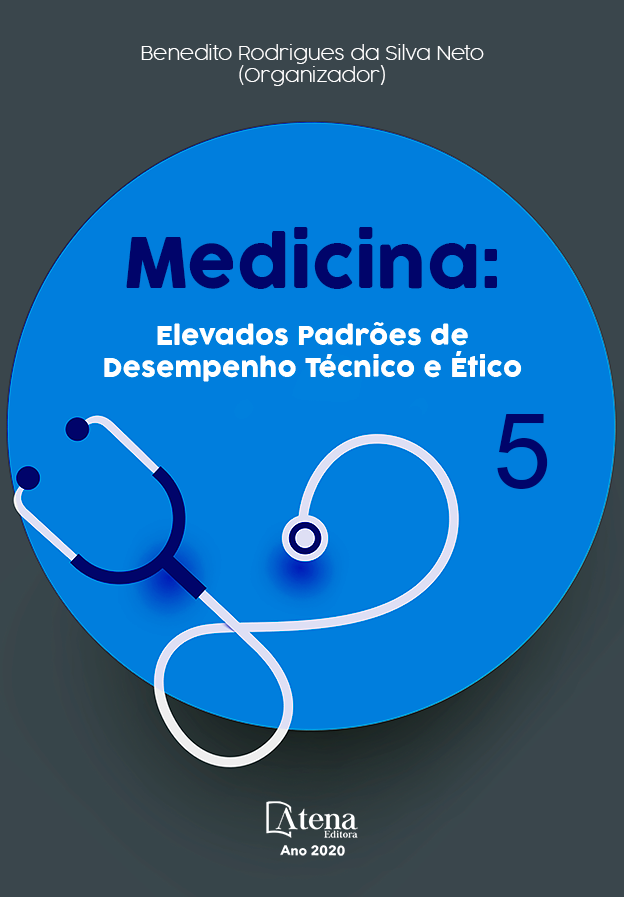
A IMPORTÂNCIA DA POPULAÇÃO INDÍGENA NO APRIMORAMENTO DO SABER DO ESTUDANTE DE MEDICINA: RELATO DE EXPERIÊNCIA ACADÊMICA
A história da sociedade indígena em terra brasílica é marcada por inúmeros acontecimentos mórbidos desde a chegada dos colonos, que entre estes podemos destacar a desigualdade, escravidão, intolerância, doenças e genocídios. Logo, é possível visualizar a intensa redução da população indígena com a dominação que foi imposta no século XIV no Brasil. A partir desse contato, a cultura indígena sofreu profundas modificações, enfraquecendo as matrizes cosmológicas e míticas que giravam em torno da dinâmica tradicional indígena, havendo uma miscigenação entre os povos. Visando a prática da integração e respeito aos costumes, esse relato de experiência tem como objetivo compartilhar a vivência de acadêmicos do Curso de Medicina do Centro Universitário do Espírito Santo (UNESC), do Módulo Interagindo com a Comunidade em Ações de Saúde Indígena no primeiro semestre de 2017 em tribos localizadas no município de Aracruz – ES. Dentre essas ações foram realizadas palestras e visitas domiciliares com as quais, houveram um grande acolhimento e atenção das comunidades indígenas com todos os envolvidos. Foi possível visualizar uma agressiva e significativa perda linguística, pois a língua indígena é pouco disseminada entre eles, com menos da metade da população com domínio do tupi-guarani, sendo perceptível a facilidade comunicativa do português. Além disso, houve uma perda parcial de alguns elementos culturais, sendo difundido somente alguns rituais e organização social. A visita propiciou aos estudantes um aumento e aprimoramento de sua visão em outros tipos de cultura, com os quais integram o saber do discente perante situações diversificadas que possam ser destinadas a eles em unidades de saúde e até mesmo em hospitais. Atividades como essa, tornam-se de grande relevância para o ensino médico, uma vez que a experiência com a diversidade cultural, conhecimentos diferenciados e valores sociais de etnias específicas, consolidam saberes transversais para uma formação médica humanizada.
A IMPORTÂNCIA DA POPULAÇÃO INDÍGENA NO APRIMORAMENTO DO SABER DO ESTUDANTE DE MEDICINA: RELATO DE EXPERIÊNCIA ACADÊMICA
-
DOI: 10.22533/at.ed.6862011112
-
Palavras-chave: Saúde de populações indígenas; Atenção primária à saúde; Educação em saúde; Cultura indígena.
-
Keywords: Health of Indigenous Peoples; Primary Health Care; Health Education; Indigenous Culture.
-
Abstract:
The indigenous societies history in Brazil is marked by numerous morbid events since the colonists arrival, that among these we can highlight inequality, slavery, intolerance, disease and genocide. Therefore, it is possible to visualize the intense reduction of the indigenous population with the domination that was imposed in the fourteenth century in Brazil. From this contact, the indigenous culture has undergone profound changes, weakening the cosmological and mythical matrices that revolved around the traditional indigenous dynamics, with a miscegenation between people. Aiming at the practice of integration and respect for customs, this experience report aims to share the experience of medical students of the University Center of Espirito Santo (UNESC), the module Interacting with Community in indigenous health actions in the first half of 2017 in tribes located in the municipality of Aracruz - ES. Among these actions were lectures and home visits with which there was a great welcome and attention of the indigenous communities with all involved. It was possible to see an aggressive and significant linguistic loss, because the indigenous language it is a little disseminated in between them, with less than half of the population it is tupi-guarani mastery, and reliable the communicative ease of portuguese. In addition, there was a partial loss of some cultural elements, being widespread only some rituals and social organization. The visit provided the students with an increase and improvement of their vision in other types of culture, with which they integrate the knowledge of the students in diverse situations that can be intended for them in health units and even in hospitals. Activities such as this, become of great relevance to medical education, since the experience with cultural diversity, differentiated knowledge and social values of specific ethnicities, consolidate transversal knowledge for a humanized medical training.
-
Número de páginas: 13
- Adriene de Freitas Moreno Rodrigues
- Flávia Alves Alvarenga
- Eduarda Cani Gatti
- Brenda Duarte Bassetti
- Gabriela Gatti Machado
- Mariana Loureiro Rocha
- Matheus Zorzanelli Gavassoni
- Matheus de Almeida Schittini
- Mariana Serapião Rebelin


